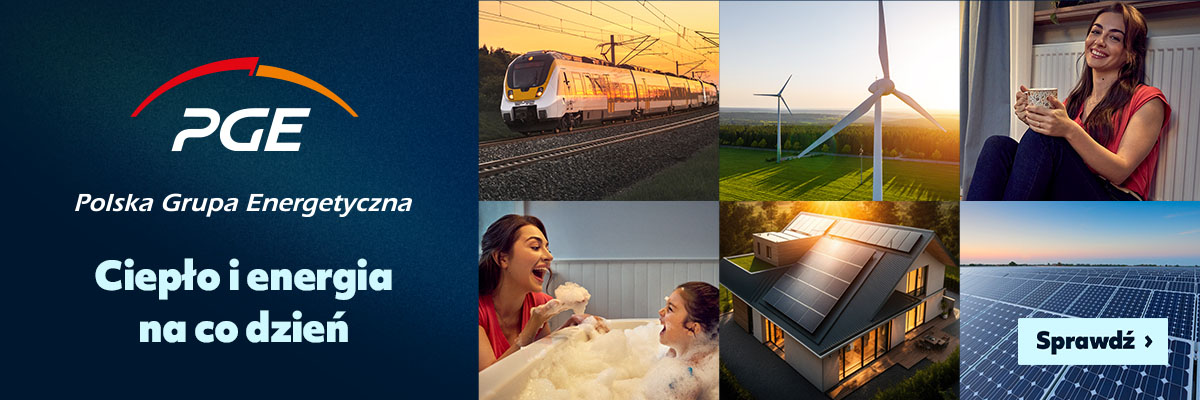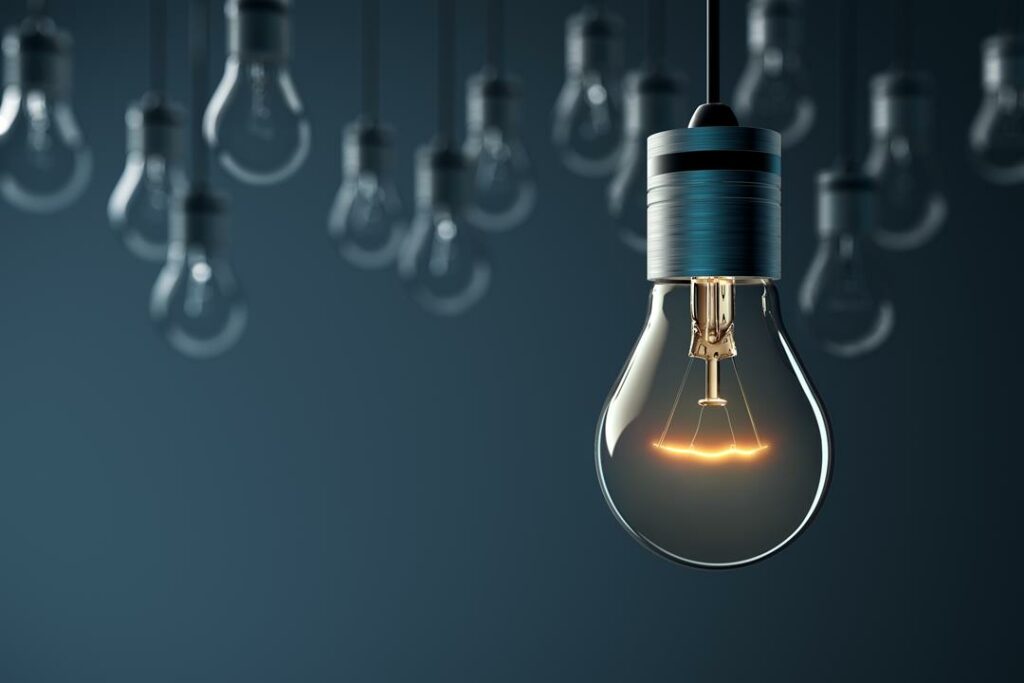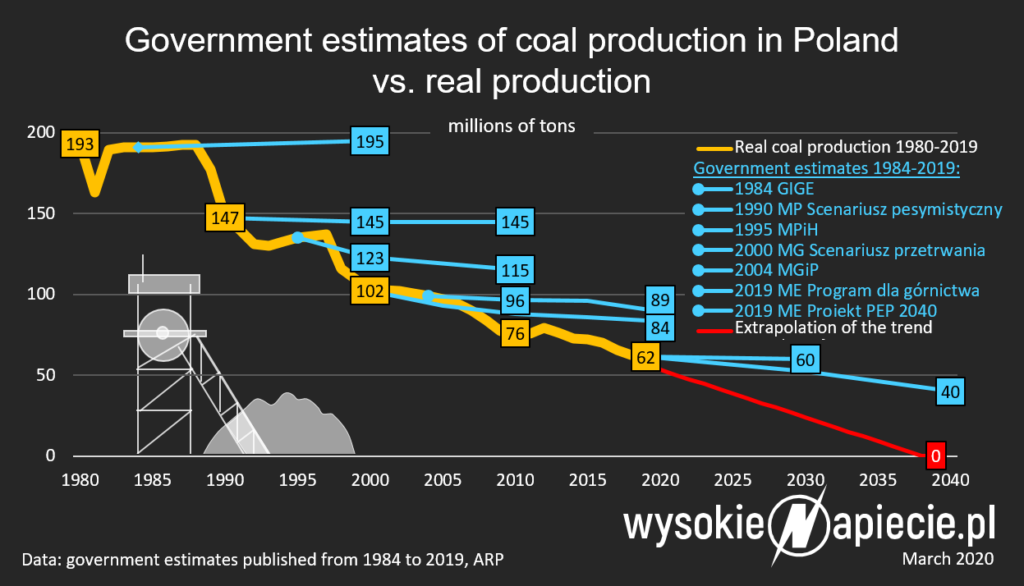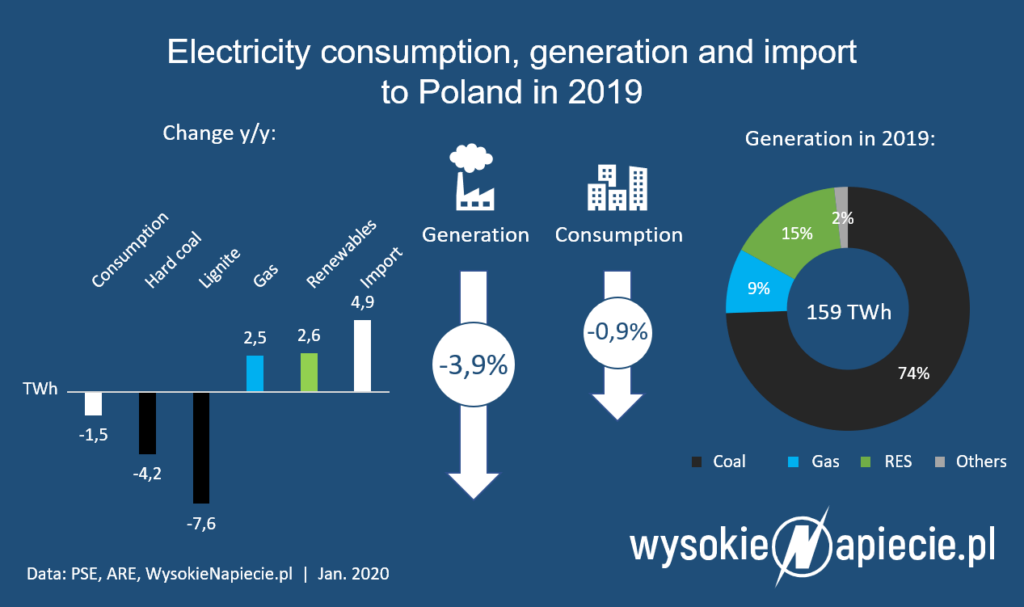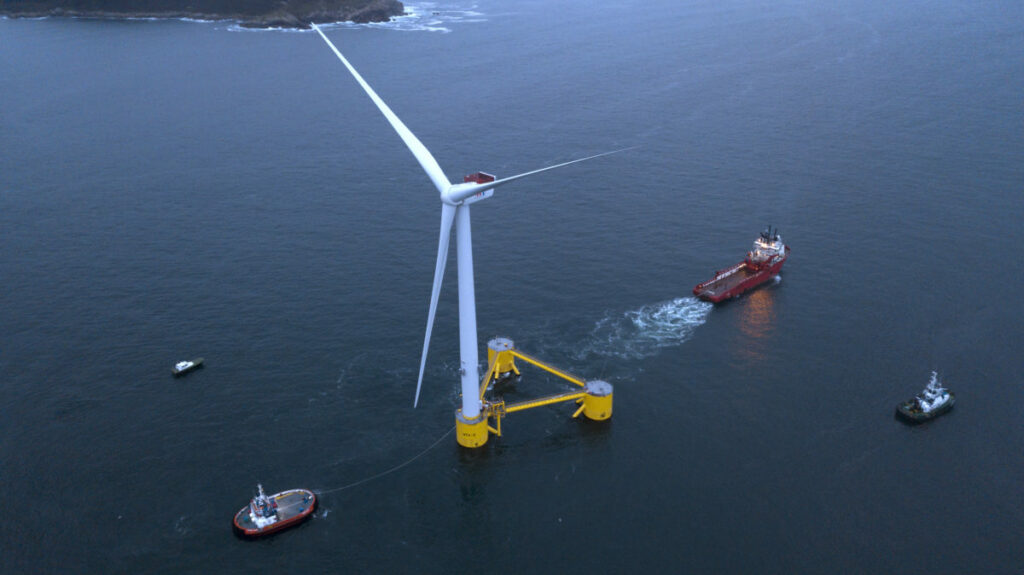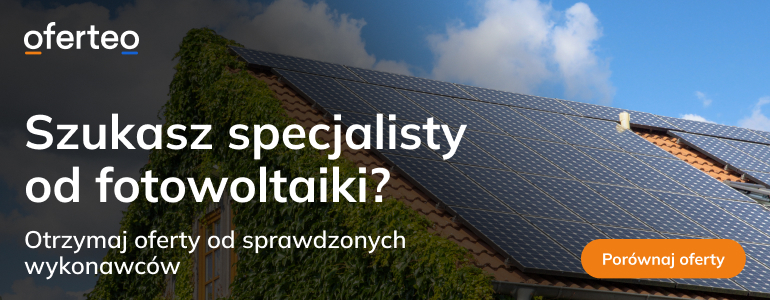Spis treści
Addressees:
Government of Poland: Ministry of Climate, Ministry of State Assets, Ministry of Development, Ministry of Digitization
Statistics Poland, Energy Regulatory Office, Energy Market Agency, Industrial Development Agency
Polskie Sieci Elektroenergetyczne S.A.
Polskie Towarzystwo Przesyłu i Rozdziału Energii Elektrycznej (PTPiREE), Polskie Towarzystwo Elektrociepłowni Zawodowych (PTEZ), Towarzystwo Gospodarcze “Polskie Elektrownie” (TGPE)
Polish Power Transmission and Distribution Association (PTPiREE), Polish Association of Heat and Power Plants (PTEZ), Polish Power Plants Association (TGPE)
Mineral and Energy Economy Research Institute of the Polish Academy of Sciences (IGSMiE-PAN), Polish Geological Institute National Research Institute (PIG-PIB), Central Mining Institute (GIG)
For over 15 years, Poland has been implementing EU reforms aimed at modernising and transforming the national energy sector. However, the ambitious legislation coming from and strategies driven by Brussels usually encounter resistance on the Polish ground. As a result, the implementation is delayed and hampered.
As the just transition in Poland is gaining momentum, it turns out that in the debate on the future of the energy mix, we lack the most fundamental fuel. This absent element is none of the most frequently mentioned technologies – coal, gas, nuclear or RES – but data.
The importance of digitization of public services was demonstrated during the COVID-19 pandemic – it turned out that many basic public services have been successfully digitised. Long-term investments in software and hardware technologies have paid off, but Poland is still at the beginning of this digital transformation.
Yet still, numerous public services remain paper-based or difficult to access for ordinary citizens. One of them is public statistics of the energy and hard coal mining sectors. Unfortunately, the debate about the future of energy mix in Poland is loaded with opinions or simple one-dimensional indicators, which do not meet scientific standards. Why? Public statistics from these sectors is not only generally inaccessible to the public, but hidden behind the paywall. The government and its two contractors responsible for data collection and publication Energy Market Agency (Agencja Rynku Energii S.A.) and Industrial Development Agency (Agencja Rozwoju Przemysłu, Oddział w Katowicach) refuse to provide data on the basis of access to public sector information request.
The current model is fundamentally incompliant with the European Statistical Code and the fundamental premise of the Clean Energy for All Europeans package. According to Article 23 of EU Directive 2019/944, data should be made available in a ‘non-discriminatory manner’ and no ‘additional costs for access should be charged to final customers’.
Obtaining only the basic publications financed with taxpayers’ money from these institutions is burdened with costs up to several thousand Polish zloty, whereas annual costs of full coverage might reach up to several tens of thousands zloty (EURPLN ~4.4). The data format offered is mostly non-machine readable (PDF files). High costs of obtaining proper data vastly hamper multi-dimensional, in-depth analysis, including evaluation of public policy and reforms.
It is not unusual for public institutions, utilities and scientists to have great difficulties in accessing data on energy and mining sectors. This has a negative impact on the quality of their decisions and conclusions, based on presumptions and rumours instead of transparent studies conducted under scientific rigour.
Particularly now, when Poland faces the challenge of just transition, it is necessary to involve social partners, independent and dispersed investors and research institutions, think-tanks and non-governmental organisations in the process of shaping a modern and transparent energy system that serves us all. This goal can only be successfully achieved if we start with developing a strategy which relies on information symmetry. It requires equal, universal and free access to data and public statistics in particular.
The Polish government is well-equipped to achieve this. The Ministry of Digitization is working on the Public Data Opening Programme implemented jointly by other ministries. The data.gov.pl portal serves as an example for a necessary publishing standard and would be a perfect platform for publishing energy sector resources currently unknown to the public, in user-friendly formats and available free of charge. Many institutions, including the Energy Regulatory Office, have already started doing so.
The exceptionality of energy data undoubtedly requires learning from successful foreign projects. Good practices can be found across the network of electricity transmission operators (entsoe transparency portal), governments of the United Kingdom (Energy Data Taskforce) and Denmark (Energi Data Service) or research groups from Germany (Open Power System Data, Open Energy Platform).
The benefits of such platforms outweigh their financial and organisational costs. The positive effects of opening access and implementation of data publication standards are numerous: boosted entrepreneurship based on innovative business models, higher rank of research teams in European scientific community (e.g. Horizon 2020), higher quality of public policy and data-oriented education of specialists for the needs of the labor market.
Public statistics should neither be subject to copyright laws nor hidden behind the paywall. Once financed with taxpayers’ money, resources should be made available for free.
Therefore, Instrat recommends the following to the Polish government with regard to the energy & coal mining sectors:
- to open the access to existing statistical resources held by public administration,
- to conduct public consultation to examine the needs of users – traditional and independent investors, civil society and the research community,
- to develop a strategy for the publication of data from public and private resources according to the guidelines of the Open Data Directive – according to the public data management model,
- to establish a platform for the publication of statistical data in a user-friendly, free of charge and machine-readable format
Instrat has already signaled the problem in Autumn 2019 in an op-ed published by portal WysokieNapiecie.pl. We have hence established free of charge platform energy.instrat.pl offering access to aggregated and visualised datasets which we hope to be just a beginning of the debate.
Team of Instrat Foundation, Research program Energy & environment – Michał Hetmański, Paweł Czyżak, Krzysztof Stępień
Co-signatories of the open letter – alphabetical order:
Tobiasz Adamczewski – Board member, WWF Polska
Rafał Bajczuk – Senior Policy Expert, Electric Vehicles Promotion Foundation (FPPE)
Maciej Bando – Doradztwo Gospodarcze – Strategie Energetyczne
Patryk Białas – President, Association BoMiasto
Krzysztof Bolesta – Vice-president, Electric Vehicles Promotion Foundation (FPPE)
Hanna Brauers – Researcher, CoalTransitions Research Hub, Technical University of Berlin
Robert Brückmann – Head of Policy Department, eclareon
Andrzej Ceglarz – Bavarian School of Public Policy, Technical University of Munich
Ryszard Cetnarski – Enercode
Michał Dorociak – 300RESEARCH
Anselm Eicke – Research Associate and PhD Candidate, Hertie School of Governance
Dr.Eng. Szymon Firląg – Faculty of Civil Engineering, Warsaw University of Technology
Radosław Gawlik – President, Ecological Association “EKO-UNIA”
Hanna Gill-Piątek – Member of the Polish Parliament
Dr.Eng. Paweł Gładysz
Albert Gryszczuk – President, National Chamber of Energy Clusters
Andrzej Guła – Leader, Polish Smog Alert
Prof. Dr. Lion Hirth – Assistant Professor of Governance of Digitalization and Energy Policy, Hertie School of Governance
Ludwig Hülk – Project Manager & Researcher, Reiner Lemoine Institute
Krzysztof Izdebski – Policy Director, ePaństwo Foundation
Ilona Jędrasik – Poland Energy Lead, ClientEarth
Hanns Koenig – Head of Commissioned Projects, Central Europe, Aurora Energy Research
Maciej Konieczny – Member of the Polish Parliament
Jarosław Kopeć – Data journalist, BIQdata, Gazeta Wyborcza
Marcin Korolec – President, Electric Vehicles Promotion Foundation (FPPE)
Krystian Kowalewski – Executive Director, Polish Committee of the World Energy Council
Bartłomiej Kozek – Polish Correspondent, Green European Journal
Agata Kuźmińska – President, Green Future Institute
Paweł Lachman – President of the board, Polish Association for Heat Pump Technology and Development (PORT PC)
Dr Zofia Łapniewska – Jagiellonian University
Dr Joanna Maćkowiak-Pandera – President, Forum Energii
Natalia Mileszyk – Public policy specialist, Centrum Cyfrowe
Karol Mitraszewski
Charles Moore – Senior Energy & Policy Analyst, Ember
Robbie Morrison – Energy system modeler
Dr Pao-Yu Oei – Research Group Leader, CoalExit, Technical University of Berlin
Dr Adam Ostolski – Institute of Sociology, University of Warsaw
Bartosz Paszcza – board member, expert on new technologies, Klub Jagielloński
Filip Piasecki – Senior Analyst, Aurora Energy Research
Mateusz Piotrowski – ‘Europe, a patient’ initiative
Marcin Popkiewicz – Journalist, Nauka o klimacie
Felix Reitz – Energy analyst, Europe Beyond Coal
Zofia Romanowska – board member, Young Leaders in Energy Association
Joanna Rycerz – board member, Young Leaders in Energy Association
Dr Jakub Sawulski – Head of Macroeconomics Team, Polish Economic Institute
Dr Ingmar Schlecht – Policy Analyst, Neon Neue Energieökonomik & Postdoctoral Researcher, University of Basel
Christian Schnell – Solivan
Jakub Sokołowski – Economist, IBS – Institute for Structural Research
Anita Sowińska – Member of the Polish Parliament
Dr Agata Stasik – Kozminski University (ALK)
Kacper Stefaniak
Prof. dr. hab. Andrzej Szablewski – Director, Institute of Economics, Polish Academy of Sciences (PAN)
Aleksander Szpor – Head of climate & energy team, Polish Economic Institute
Dr Kacper Szulecki – Department of Political Science, University of Oslo & Environmental Studies and Policy Research Institute (ESPRi)
Paweł Szypulski – Director, Greenpeace Poland
Radosław Ślusarczyk – President, Association Workshop for All Beings
Dr Piotr Śpiewanowski – Assistant Professor, Institute of Economics, Polish Academy of Sciences (PAN)
Michał Tarka – Tarka Trupkiewicz & Partners
Dr Alek Tarkowski – President of the Board, Centrum Cyfrowe
Robert Tomaszewski – Senior Energy Analyst, Polityka Insight
Rafał Urzędowski
Tomasz Waśniewski – President of the Foundation, Foundation „Development YES – Open Pit Mines NO”
Lidia Wojtal – Climate & energy policy expert
Piotr Woźny – Social advisor to the Minister of Climate for Clean Air Priority Program implementation
Urszula Zielińska – Member of the Polish Parliament
